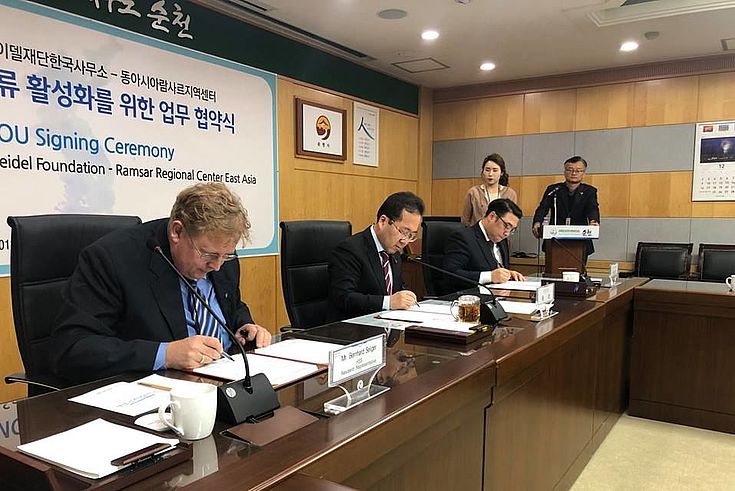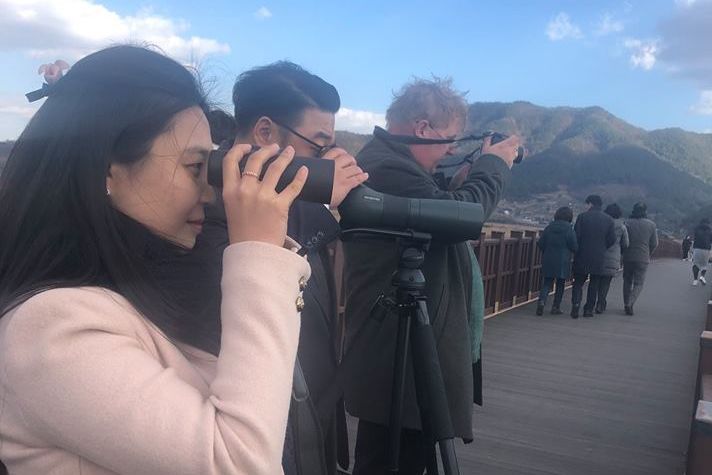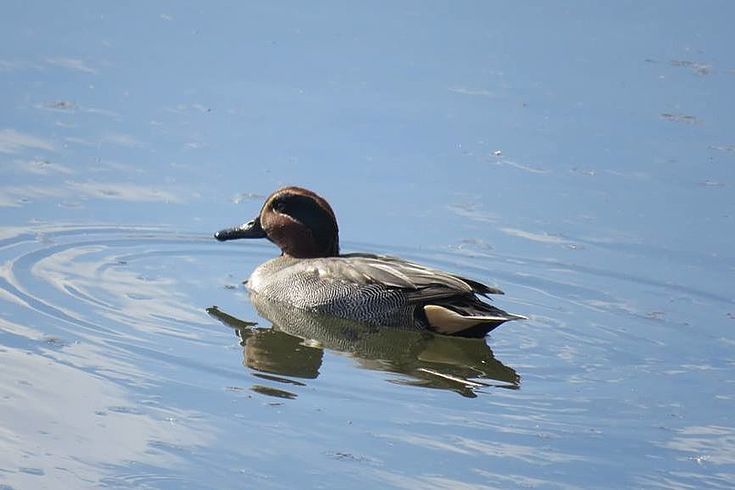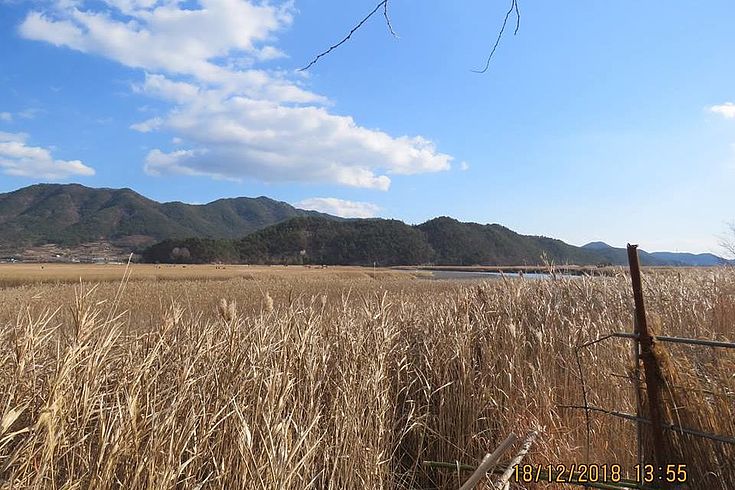Cooperation
The Connection between Trains and Cranes
Dr Seliger signing the MOU
HSS
Suncheon City, South Jeolla Province, has been working closely with HSF on various projects. One good example is related to the DPRK and Yellow / West Sea Wetland Conservation using its experiences from managing the Suncheon Bay Wetlands, one of the most diverse and important sites in RoK. In December 2018, HSF signed a MOU (Memorandum of Understanding) with the Ramsar Regional Center – East Asia (RRC-EA) and Suncheon City, to vitalize inter-Korean ecological exchanges, to share experiences and work together in the fields of wetlands and biodiversity. This is to secure the wetland conversation and wise use in countries in East, Southeast and South Asia.
Dr Seliger and Dr Hyun-Ah Choi together with the RRC-EA at Ramsar Site
HSS
Dr Bernhard Seliger, Representative of HSF Korea emphasized the cooperation opportunity for ecological network in Korean Peninsula. Before the MOU signature Dr Seliger and Dr Hyun-Ah Choi visited Suncheon Bay, Ramsar site with RRC-EA.
A Eurasion Teal checking in on us
HSS
The cooperation aims specifically to initiate new joint projects about the exchange ecological topics in East and South Asia, but also to build up education projects and expert awareness programs with a focus on CEPA (Center for European Policy Analysis). But those are not the only plans for the future and to work more closely together with North Korea concerning environmental issues is not Suncheon’s only motive. Not long ago an inter-Korean railway industry forum at the Seoul City Hall's main conference room was held and not few suggested that Suncheon should be the starting point for a connection to the Trans-Siberian railway, another project, that would require a strong connection and stable cooperation with North Korea.
View through the reed area to Yongsan
HSS
"North Korea is expected to be interested in exchanges with the city of Suncheon, which successfully hosted the garden fair because it is interested in turning into a tourism resource through ecology," a source from Suncheon City said. "Sooncheon Station is close to Yeosu Port and Gwangyang Port, so if the railroad is connected with North Korea, massive logistics can move and contribute to the tourism industry.” Or in other words – like the cranes fly over the border to get from one wetland to the other, trains might also be crossing the border, bringing people together and leading into a brighter future. In this sense, both the cranes of the wetlands and the trains of the Trans-Siberian Railway could be seen as symbols of unification and cooperation.




